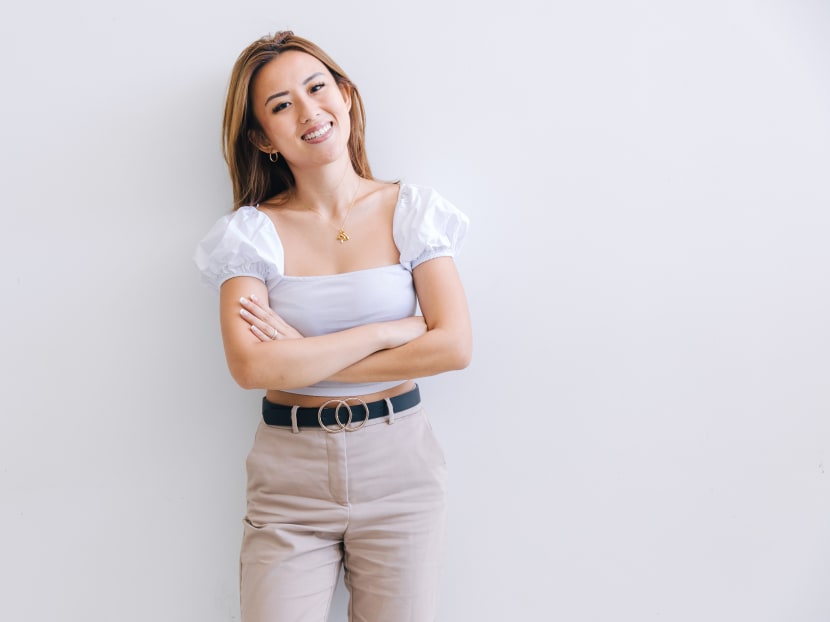Gen Y Speaks: My life has not been the same since I learnt how to learn

The author says her friends in school were surprised at how she transitioned from hating school to loving it because she had discovered a way to retain contents better.
One of the biggest discoveries I had as a teenager was that learning how to learn is a skill in itself.
Learning strategies, such as mnemonic, visualisation or testing recall, are important to help us encode and retain information.
These skills are rarely if ever explicitly taught in schools. In schools, lectures, homework and quizzes/examinations are the norm. Everything in between is left to the student to figure out.
This is counterintuitive, given how important it is to know how to learn.
I grew up with the traditional Singaporean school system in the 2000s throughout primary and secondary school. I was playful as a child, choosing to spend most of my time on computer games and television.
No amount of external tutoring could convince me to spend my time on schoolwork. My grades were average at best, though mostly mediocre.
And then something happened when I was 14. As the stress of looming O-Levels settled in, I asked myself: What can I do to push up my grades in the most efficient manner?
I discovered that learning is a skill in itself. I started dabbling in hacks to learn better.
For example, I found that writing down notes (rephrasing content in my own words) helps me encode information better. I also found that quizzing myself at the end of every chapter helps – it might be a painful process, but it made retaining information so much easier.
Quizzing myself was so effective that I would put together questions from textbooks or the internet in addition to doing homework. These skills were highly relevant for school settings where standardised testing was the norm.
What did not work for me — attempting to memorise things by reading aloud or copying it down.
There is some experimental evidence that both help, but I found this inefficient and boring. I preferred visualising or rephrasing to internalise information better.
There are many books out there on the different learning skills.
I vividly recall reading a book with tips on speed reading some 10 years ago.
I picked up practical tips like putting my reading materials further away to scan paragraphs at a time, and avoiding reading the same text repeatedly.
Within a few months of experimentation, I was soon thriving academically in a way I hadn't been before. My close friends in school were surprised at how I transitioned from hating school to loving it because I had discovered a way to retain contents better.
I unlearned habits of rote memorisation — that was an inefficient way of tackling content and exams.
My habits served me well right through university.
However as I transition to the working world, a lot of these learning skills become a lot less relevant.
Learning becomes something you have to intentionally seek. There are no assignments to challenge yourself, or exams to keep you accountable.
Learning how to learn in the working world is a lot less about hacks or quick shortcuts than thinking critically and making informed opinions.
When you read an article, a book, or see something on television, what you learn from it is filtered through your ability to evaluate an argument and respond.
This, in turn, is something that could be honed.
To start off, everyone has an analytical toolkit, consisting of different tools. Some of us are better at forming arguments and challenging the status quo, some of us are great at creative problem-solving. Schools train us to acquire this to varying degrees, though each discipline/subject prioritises different tools.
In university, by focusing on the social sciences, I managed to delve deep into the world of experiments, models, and statistics. This decision has been paying off for me in my current role doing marketing for an early stage startup.
In my role, being able to analyse marketing channels and strategies is critical. I read up on the ideas of various marketing thought leaders to get insights on different marketing challenges.
As a digital marketer, my team and I are constantly coming up with new ideas to get more customers. In a process called “growth hacking”, we always have to critically evaluate an idea, form assumptions and a testable hypothesis, before testing it out — not too unlike the experimental process in the social sciences.
After that, we have to review the idea, look at the data, and see what went wrong and what went well.
I'm constantly looking for smarter, more efficient ways to learn things. There may be no shortcut to hard work, but there are always strategies to master knowledge faster.
Now, my approach to learning is a little bit more nuanced as well.
While I was intellectually curious enough to read broadly as a teen, I now focus on topics that are critical to my work or passions I've had for the last decade or so. This way I stay motivated to continue building up my knowledge in these areas. After all, no amount of forced learning can compare to being truly interested in a subject.
In the last decade, learning how to learn better was one of the best things to happen to me. I hope others feel inspired to relook and improve their learning habits as well.
ABOUT THE AUTHOR:
Roslyn Teng founded the homegrown health food brand Made Real at the age of 19. She is now a growth marketer at Ampjar, an advertising community and marketing platform.






